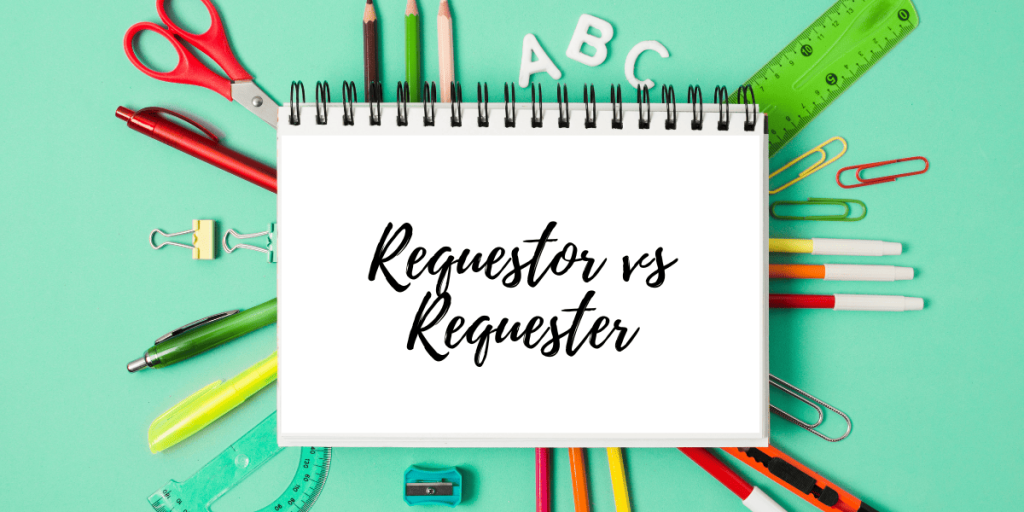Requestor vs Requester: What’s the Difference and Which One Should You Use?

Should you write “requestor” or “requester”? Both words exist in English and look almost identical, but one is much more common than the other. This is a frequent confusion for English learners and even native speakers.
This article is part of our Comparative Words series, where we explain the difference between similar English terms, when to use each, and how to avoid mistakes with clear examples and a quick quiz.
What Does “Requester” Mean?
“Requester” is the standard and most common English term used to refer to a person making a request. It is widely used in everyday communication, professional contexts, and most English-speaking countries.
Examples:
- “The requester filled out a form to get access to the building.”
- “Please include the requester’s email address in the ticket.”
What Does “Requestor” Mean?
“Requestor” is a less common spelling that also refers to someone making a request. It is typically used in legal, technical, or administrative contexts, and may appear in the U.S. within government documents or software systems.
Examples:
- “The IT system automatically logs the requestor’s ID.”
- “A requestor must provide proper authorization before proceeding.”
Key Differences: Requestor vs Requester
| Word | Frequency | Context | Example |
|---|---|---|---|
| Requester | ✅ Common | General English, everyday and professional use | “The requester submitted a support ticket.” |
| Requestor | ⚠️ Less common | Legal, technical, administrative documents | “Each requestor must sign the access form.” |
Common Mistakes
- ❌ Assuming “requestor” is a typo — it’s valid but less common.
- ❌ Using “requestor” in everyday English where “requester” is standard.
- ✅ Best practice: use “requester” unless you’re in a legal or technical setting that specifies “requestor.”
Easy Tricks to Remember
- 🧠 Think of “requester” as the default and safest choice in English.
- ⚖️ If you’re reading a legal document or IT manual, you might see “requestor.”
- 📌 Tip: When in doubt, write “requester” to avoid confusion.
Quick Practice Exercise
Choose the correct word for each sentence:
Bonus Resources
- More word comparisons → AulaPlanet
- Cambridge Dictionary: “Requester”
- Wikipedia: English spelling variations
Conclusion
Both requestor and requester are correct English words. However, “requester” is the more common and widely accepted form in general English, while “requestor” appears mainly in legal or technical contexts. When in doubt, choose “requester.”
📲 Continue exploring similar English word comparisons in our Comparative Words series on AulaPlanet.
Frequently Asked Questions (FAQs)
No, “requestor” is not a typo. It is a legitimate word but less commonly used than “requester.”
You should use “requester” as it is the standard form in modern English.
“Requestor” appears more in American technical or legal contexts, while “requester” is common in both British and American English.

Leave a Reply